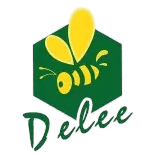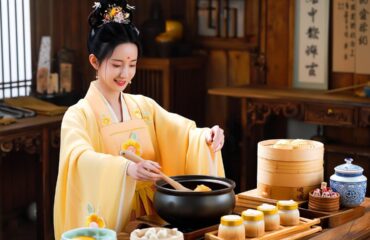Honey, a natural sweetener with a rich history, has been a staple in human diets for centuries. In Europe, honey is not only valued for its sweetness but also for its health benefits and symbolic association with a healthy lifestyle. With the increasing demand for natural and organic foods, the European honey market is experiencing significant growth. This article explores the trends and preferences in the European honey market, highlighting the most popular types of honey and the opportunities for producers. We will also discuss the role of Delee Foods, China’s largest honey exporter, in meeting the growing demand for high-quality natural honey in Europe.
The European Honey Market
Europe is one of the largest markets for honey consumption in the world, with Western and Northern European countries leading the way. Germany, France, the United Kingdom, Italy, and Spain are the largest honey consumers in Europe, with consumers in these countries showing a strong preference for natural, organic, and additive-free honey products. The growth of the European honey market is primarily driven by consumers’ increasing focus on healthy foods. Honey is rich in antioxidants, vitamins, and minerals, and offers numerous health benefits, including antibacterial, anti-inflammatory, and digestive properties. As people continue to seek natural alternatives to sugar and artificial sweeteners, honey has become a top choice.
European Consumers’ Preferences
- Natural and Organic Honey European consumers are highly concerned about food safety and health, making natural and organic honey highly sought after. Many consumers are willing to pay a premium for organically certified honey, especially when it comes from sustainable bee farms. Organic honey not only ensures that the honey itself is free from pesticide residues but also adheres to strict standards for beekeeping practices and environmental sustainability.
- Single Flower Source Honey European consumers have a particular fondness for single flower source honey, such as lavender honey, orange blossom honey, and acacia honey. These types of honey offer unique flavors and aromas, catering to consumers’ desire for diverse taste experiences. Single flower source honey is often considered a symbol of high quality and typically commands a higher price.
- Localization and Sustainability In recent years, there has been a growing trend towards localized consumption in Europe. Consumers prefer to buy locally produced honey to support local agriculture and reduce their carbon footprint. Additionally, sustainable beekeeping practices and environmentally friendly packaging have become important factors influencing consumers’ honey purchasing decisions.
- Functional Honey Functional honey, such as Manuka honey and propolis honey, is gaining popularity due to its special health benefits. Manuka honey, known for its strong antibacterial properties, is often used to boost immunity and promote wound healing. This type of honey has significant potential in the high-end European market.
Promoting Honey in the European Market
To successfully promote honey in the European market, it is essential to emphasize its natural and healthy attributes. Through thoughtful packaging design and compelling marketing copy, producers can convey the purity, absence of additives, and organic certification of their honey products, appealing to health-conscious consumers. Additionally, manufacturers can develop diverse product lines to meet the varying preferences of European consumers. For example, offering specialty honeys like lavender honey and orange blossom honey, or honey products infused with functional ingredients such as propolis and pollen, can help capture different market segments.
Localized marketing and a commitment to sustainable development are also crucial. By partnering with local bee farms or using eco-friendly packaging, brands can demonstrate their dedication to sustainability. Leveraging social media and online platforms to share the stories behind their honey products can also enhance consumers’ emotional connection to the brand.
Participating in European food exhibitions, such as Anuga in Germany and SIAL in France, is another effective way to enter the European market. These events provide valuable opportunities to showcase products and establish connections with European importers and distributors.
Delee Foods: A Leading Honey Exporter
Delee Foods, based in Anhui Province, China, is the largest honey exporter in the country. With access to unique natural bee farms, Delee Foods provides high-quality natural honey that meets the stringent standards of European consumers. The company’s commitment to quality and sustainability makes it a reliable partner for businesses looking to source premium honey products. If you are interested in learning more about Delee Foods and their range of natural honey products, visit their website to discover the best natural honey available




